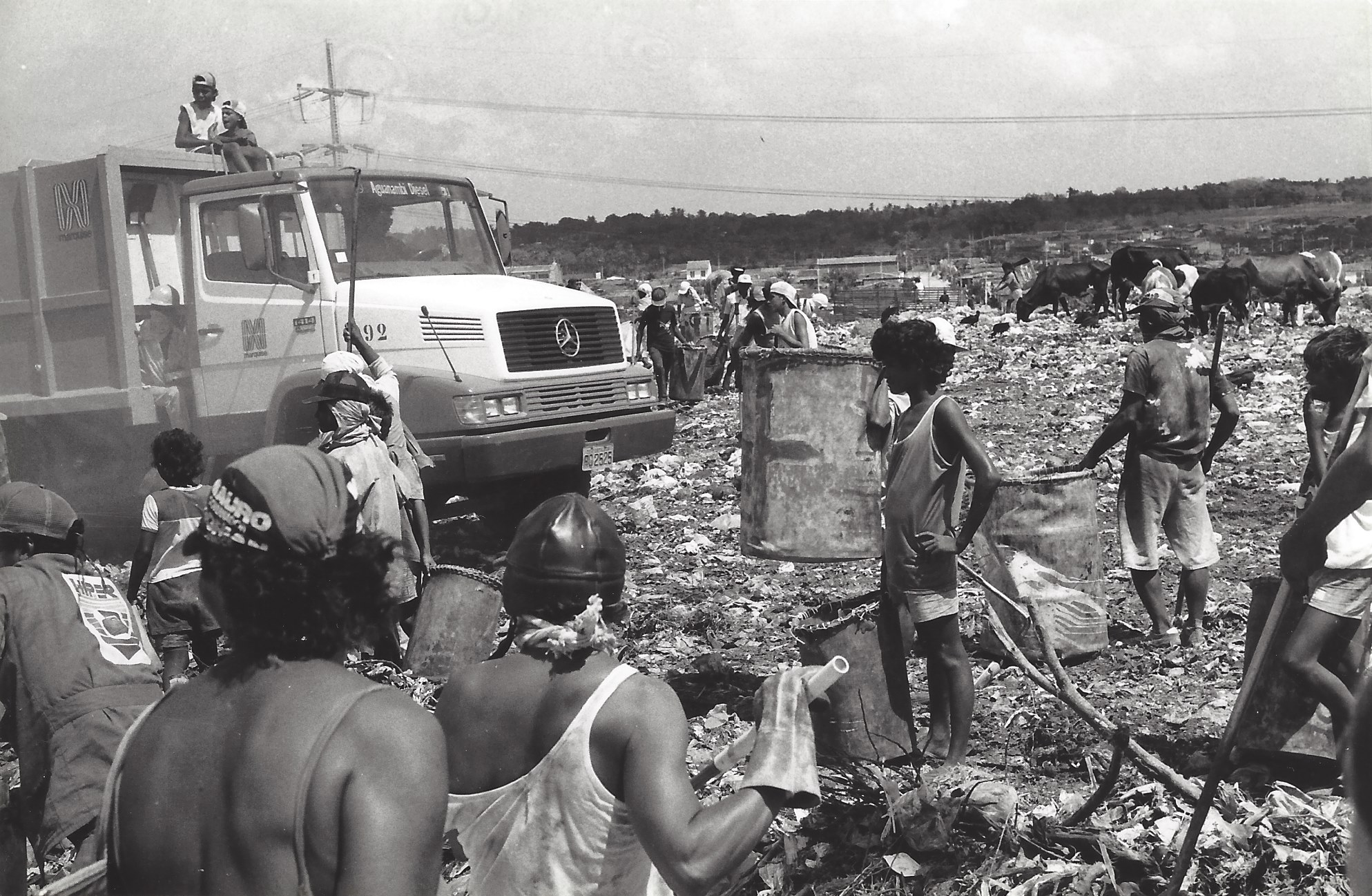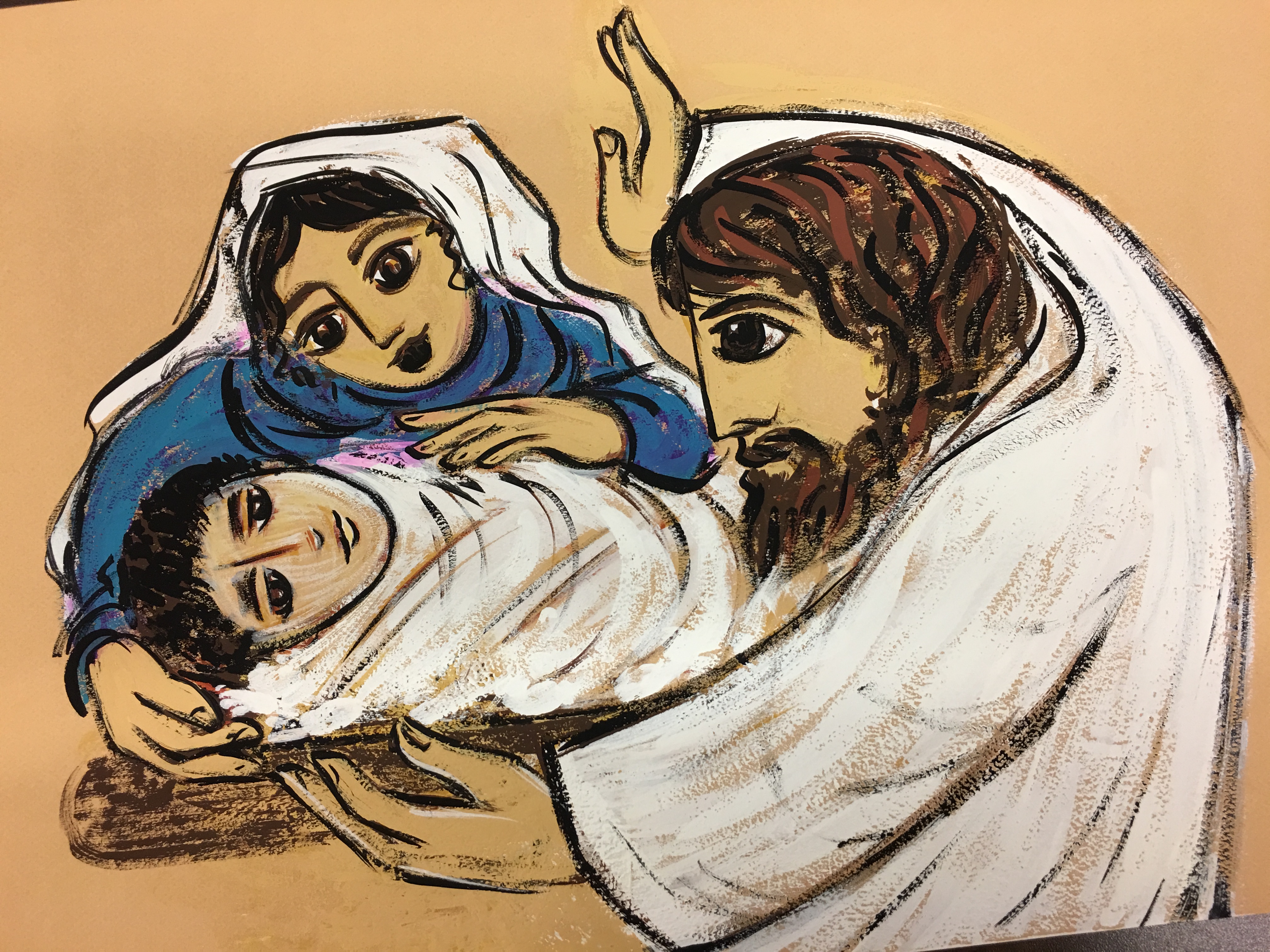Together in My Name

Cover design by Jackie Clackson
The first ‘Walking on Water’ video course had focussed on Jesus’ own preaching. But the meaning of Jesus’ teaching developed further in various Christian communities. I designed the second video course, ‘Together in My Name’, to explain how the three so-called Synoptic Gospels originated from this process. Jesus preaching consisted in brilliant, but sporadic utterances. The course studies how the Early Christian communities interpreted and streamlined his vision in an evolution known as “Gospel formation”.
And Gospel formation continues even today. Jesus’ word can be brought to life in our own contemporary situation. Community and Gospel are closely related even though many of us may no longer be aware of this mutual dependence. The proclamation of the Gospel makes us a community. But in its turn each community gives new meaning to the Gospel. The early Christians carefully studied Jesus’ teachings and even learned them by heart. On the other hand, they were not afraid to extract new meanings from Jesus’ words. For they knew his words are ‘Spirit and life’ (John 6,63). The ultimate aim of this course was to restore this dynamic interpretation of the Gospel.
Both the 208 page course book, the film scripts for the video and the guide were written by me. Jackie Clackson designed internationally acceptable gospel illustrations for the teaching slots on the video.
Part One. The Gospel builds communities
The course book (chapters 1,2 and 3) begins by providing much biblical information about Antioch. It was in this city that the first non-Jewish Church arose. Paul and Barnabas taught the community for a whole year. It was in Antioch that the followers of Jesus were first called `Christians’ (Acts 11,26). Also, Antioch was probably the birthplace of Matthew’s Gospel.
After having a good look at all the available historical data on Antioch, on its inhabitants and the life they led, we consider the new marvel of the mixed Christian community. Syrians, Romans and Hellenists, Jews and Gentiles, had become one family for the first time. Their common belief welded them into a family that transcended all the social barriers of the time.
We consider the implications of this for our own time. We look at parishes and basic Christian communities. We discover the ideals of being `local Church’ and `belonging’ expressed in contemporary documents.
The story on the video was designed to help us reflect on what is involved through a modern parable. It tells the story of Sheila, who has run away from her parents in Liverpool. She is now trying to survive in London. Will she find a home there? Will she find Christ in the people she meets? Will she find a community to which she can belong?
This part of the video was filmed in London with the professional help of CCTV Studio in Bushey.
Part Two. The Community builds Gospel
The course book (chapters 4, 5 and 6) goes on to show that Gospel formation had not finished. The words and actions of Jesus went through a long process of refinement in the early Christian communities. At the origin stands Jesus himself. We get to know him as an extraordinary teacher. His words were characterised by rythmic expression, sharp wit, powerful image, Jewish poetic form. Jesus preached as occasion demanded, but he made his disciples learn key texts by heart.
After Jesus’ death, these texts became the core of strings of memorised material passed on in ‘oral tradition’. We study the traces which memorisation has left on the shape and sequence of Gospel passages. We pay special attention to the element of interpretation. The catechists of the early Church did not simply pass on Jesus’ teachings. They also applied them to specific circumstances and even re-formulated them to show how they applied.
But this raises questions. Do we still have Jesus’ own teaching? Did the dynamic interpretation diminish the reliability of the tradition? And, if the early Christian communities treated Jesus’ words as a living message, should we not have the same freedom today? Do we, as Jesus’ community, still ‘make’ Gospel?

Ragpickers looking for usable scraps on a rubbish dump outside Forteleza.
On the video we see the process of dynamic interpretation exemplified in a moving story about Brazilian ragpickers. They have formed a charismatic community near their place of work: a gigantic rubbish dump near the city of Forteleza. When Vanessa loses her wayward grandchild, what does it teach the community about their responsibility to their children? Jesus’ parable of the lost sheep was interpreted differently by the communities standing behind Matthew’s (Mt 18,12-14) and Luke’s (Lk 15,3-7) Gospels.
To find the setting for this story my colleague Hubert de By and I travelled to Brazil. We flew to Belo Horizonte in an attempt to meet the famous liberation theologian Carlos Mesters. Arriving at his house we were given a cup of coffee, but politely told that Carlos had not time to receive us. However, Carlos overheard Hubert and me speak Dutch. This made him suddenly step out of the shadows for – to our surprise – he turned out to be Dutch himself! It resulted in a positive four-hours sharing of our work. We learned a lot from Carlos.
It was in Sao Paolo that I was told about the fact of the ragpicker community in Forteleza. It provided the basis for my script. The filming in Brazil was done by Verbo Filmes run by the SVD Fathers in São Paolo.
Part Three. Gospel and Life
The course book continues to show that Jesus’ word can be brought to life today. The three Gospels of Matthew, Mark and Luke are curiously similar and yet strikingly different in crucial respects. The origin and purpose of each Gospel can be reconstructed with the help of modern scholarship.
Mark wrote for grass-roots Christian communities. Mark took the existing ‘strings’ of oral and written texts that recorded what Jesus had said and done, and re-shaped them into a simple ‘heroic’ account of Jesus.
Matthew probably composed his Gospel in Antioch. He addressed the problems of converts from the Jewish tradition. He structured his Gospel around five ‘sermons’ of Jesus, echoing the five books of the Tora, so central to Jewish belief and practice.

Jesus brings the son of the widow of Naim back to life. Illustration by Jackie Clackson.
Luke, on the other hand, wrote for another audience: the Greek speaking, multi-cultural residents of the cities of the Graeco-Roman empire. He highlighted Jesus’ concern for the underdogs: the pagans, the poor, women, the sick. He stresses forgiveness, kindness, Christian joy.
All three Gospels teach that Jesus’ message should transform actual living. We should interpret the texts dynamically. This is also the theme of the story presented on the video.
To find an appropriate story for the video Hubert and I travelled to Nairobi. We met Cardinal Maurice Otunga. We visited various parishes. But the final inspiration came from Showry Moyo where a group of Mill Hill Missionaries were running outstations in Nairobi’s shantytowns.
The story presents such a small Christian community in a Nairobi slum grappling with almost insurmountable problems: poverty, alcoholism, youth crimes, AIDS. In the midst of their dramatic and extreme circumstances, they affirm the centrality of God’s word. A moving account indeed!
Distribution
The video course was launched by the Rt Rev Philip Pargeter, adjunct bishop of Birmingham, on the 9th of November 1991 at Maryvale House, Oscott, Birmingham. In a subsequent seminar for parish clergy and RE teachers we received the following feedback from the participants:
* ‘I have never seen so much depth in the Gospel. Jesus’s teaching is much more persuasive with this historical perspective.’
* ‘I have learnt a lot from the video and the book. They have given me a thirst for understanding my faith better.’
* ‘Our group discovered the reality of God’s love as we met to reflect on the meaning of Jesus’s words for today.’
* ‘This course will change my way of praying. I will begin to speak to Jesus directly.’
* ‘The teaching inspired me. The images moved me. It has stiffened my resolve to try to live the Gospel in my own part of the world.’
* ‘I wish I had known these things long ago! Why can’t believers be treated with more trust, as mature people? Making people think helps faith sink its roots.’
‘Together in My Name’ was been co-produced in the following languages and countries: Chinese (Taiwan), Danish, Dutch (Belgium and the Netherlands), English (Australia, Ireland, New Zealand, UK, USA), Indonesian, Japanese, Korean, Polish, Portuguese (Brazil) and Spanish (Central and South America, USA).
THE STORY OF MY LIFE
- » FOREWORD
- » Part One. LEARNING TO SURVIVE
- » origins
- » into gaping jaws
- » from the pincers of death
- » my father
- » my mother
- » my rules for survival
- » Part Two. SUBMIT TO CLERICAL DOGMA — OR THINK FOR MYSELF?
- » seeking love
- » learning to think
- » what kind of priest?
- » training for battle
- » clash of minds
- » lessons on the way to India
- » Part Three (1). INDIA - building 'church'
- » St John's Seminary Hyderabad
- » Andhra Pradesh
- » Jyotirmai – spreading light
- » Indian Liturgy
- » Sisters' Formation in Jeevan Jyothi
- » Helping the poor
- » Part Three (2). INDIA – creating media
- » Amruthavani
- » Background to the Gospels
- » Storytelling
- » Bible translation
- » Film on Christ: Karunamayudu
- » The illustrated life of Christ
- » Part Three (3). INDIA - redeeming 'body'
- » spotting the octopus
- » the challenge
- » screwed up sex guru
- » finding God in a partner?
- » my code for sex and love
- » Part Four. MILL HILL SOCIETY
- » My job at Mill Hill
- » The future of missionary societies
- » Recruitment and Formation
- » Returned Missionaries
- » Brothers and Associates
- » Part Five. HOUSETOP LONDON
- » Planning my work
- » Teaching teaching
- » Pakistan
- » Biblical Spirituality
- » Searching God in our modern world
- » ARK2 Christian Television
- » Part Five (2) New Religious Movements
- » Sects & Cults
- » Wisdom from the East?
- » Masters of Deception
- » Part Five (3). VIDEO COURSES
- » Faith formation through video
- » Our Spirituality Courses
- » Walking on Water
- » My Galilee My People
- » Together in My Name
- » I Have No Favourites
- » How to Make Sense of God
- » Part Six (1). RESIGNATION
- » Publicity
- » Preamble
- » Reaction in India
- » Mill Hill responses
- » The Vatican
- » Part 6 (2). JACKIE
- » childhood
- » youth and studies
- » finding God
- » Mission in India
- » Housetop apostolate
- » poetry
- » our marriage
